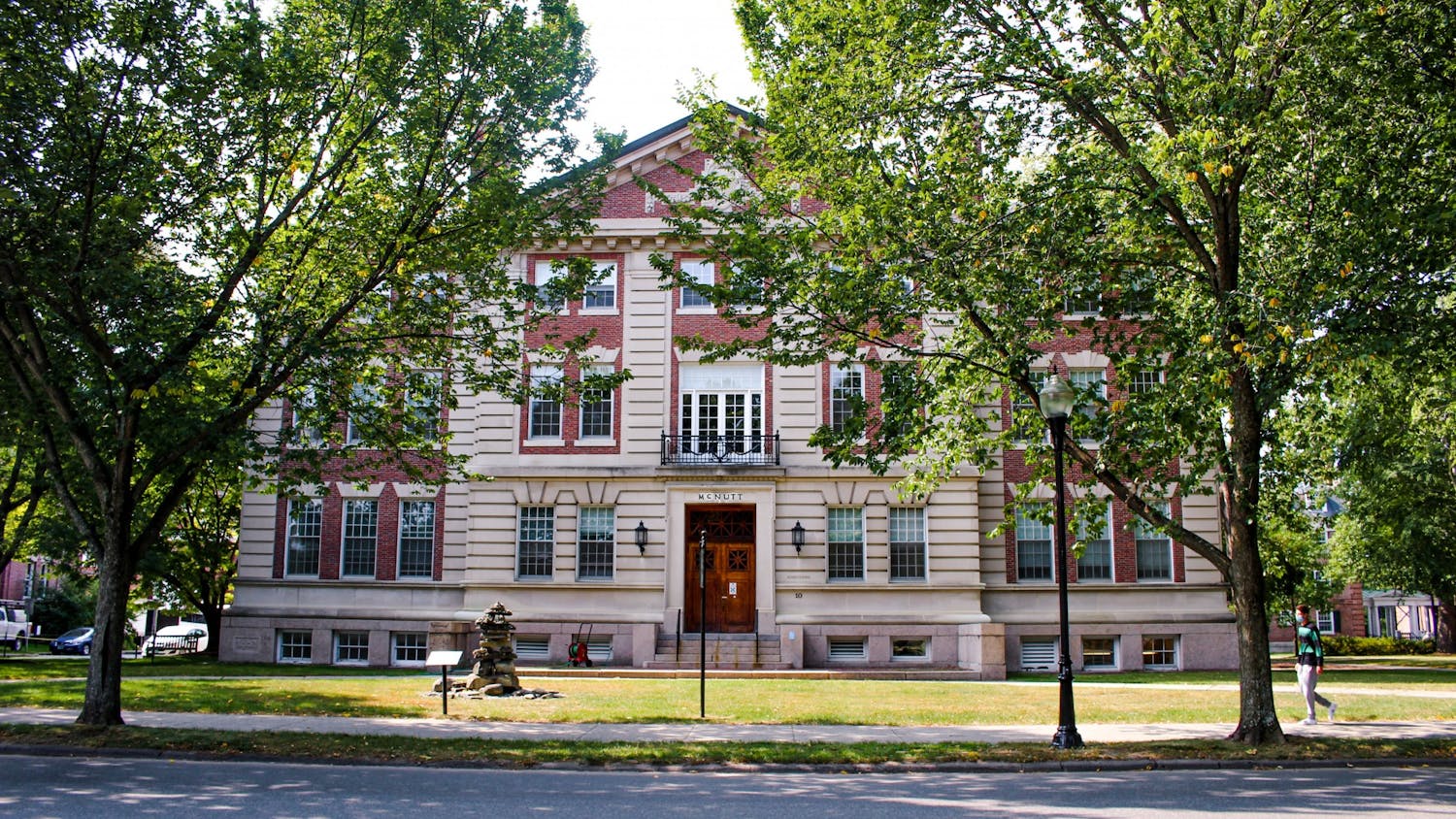Top White House economic adviser Allan Hubbard gave an upbeat report on the current U.S. economy Wednesday evening at the Rockefeller Center, during which he expounded on the benefits of free-market policies and fielded questions from a rapt audience.
Hubbard, who said he meets with the president four to five times per week, is the assistant to the president for economic policy and director of the National Economic Council, an organization that advises the president on domestic and global economic policy.
"My goal is to convince you that free markets lead to the best economies possible and benefit everyone, and centrally controlled economies are really not helpful and result in virtually everyone being hurt," he said.
Hubbard pointed to the growth in the gross domestic product and relatively low levels of unemployment as he presented a positive analysis of the American economy.
"The American economy is quite, quite strong," he said.
Making an argument for free-market economics, Hubbard compared the American economy to the economies of France and Germany, both of which have higher unemployment rates and slower economic growth. He attributed America's success to lower taxes and less government regulation.
After his cheery analysis of the U.S. economy, Hubbard listed four areas of concern: the current account deficit, the budget deficit, rising energy prices and expensive health care.
"I don't want to suggest that everything's perfect with our economy. We have serious problems," he said. "We're terrible at saving. We're running a deficit. The government is running a deficit."
To reduce the trade deficit, Hubbard said the government should promote private saving while increasing its own savings and also encourage other countries to pursue free-market policies and flexible exchange rates.
Throughout the speech, which approximately 50 people attended, Hubbard impressively spewed macroeconomic statistics like an Economics 22 professor.
In an interview with The Dartmouth, he defended the Bush administration's economic policy.
"[Bush] has been working aggressively to slow down the growth of discretionary spending. He has made a commitment to cut it in half by 2009," he said. "This president is a fiscal hawk. He wants to get the budget deficit down. He's putting pressure on congress to cut spending and he will continue to do that as long as he is in office."
According to the Bureau of Economic Analysis, however, non-defense spending has increased 18 percent during Bush's first term. Hubbard criticized the prevalence of pork-barrel spending contributing to this figure.
"You know there is a lot of pork, I hate to say it. There were over 6,000 earmarks in the highway bill. Unfortunately, that's the way democracy works," he said.
Hubbard is also an attendee of the mysterious Bilderberg Conferences, a secretive discussion group composed of the world's elite and often the target of far-fetched conspiracy theories. In a response to an interview question about it, he laughed and downplayed its significance.
"Actually, it's a lot less interesting than you might imagine," he said. "There's not some deep dark activities going on."
Rockefeller Center Director and economics professor Andrew Samwick introduced Hubbard. Samwick served as the chief economist on the staff of the President's Council of Economic Advisers from July 2003 to July 2004. This September, President George W. Bush named two other Dartmouth-affiliated economists, Katherine Baicker and Matthew Slaughter, to serve on the same council. Hubbard noted this prevalence of Darmouth economists.
"I feel like I've been getting a lot of exposure to Dartmouth," he said, adding that his daughter is applying early decision to the College.
Before becoming the top economic advisor to the president in 2005, Hubbard worked as Vice President Dan Quayle's Deputy Chief of Staff and has served as the executive director of the President's Council on Competitiveness.
Hubbard's career, however, has not been limited to public service. He is the president of a company he co-founded in 1977. He holds a bachelor's degree from Vanderbilt University and an M.B.A. and J.D. from Harvard University.



